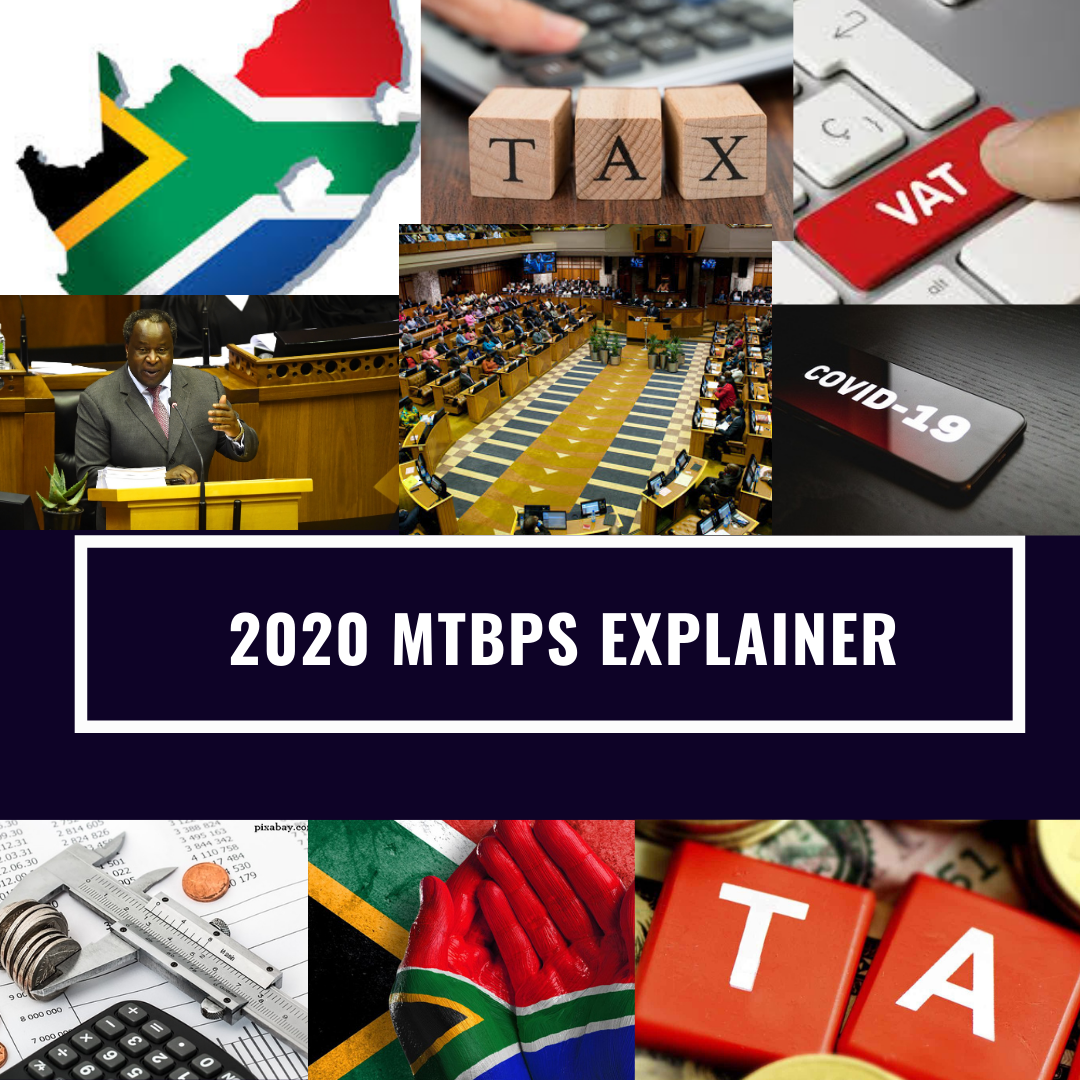2020 Medium-Term Budget Policy Statement (MTBPS) Explainer

The 2020 Medium-Term Budget Policy Statement (MTBPS) is set to be delivered by the Minister of Finance, Mr Tito Mboweni, on Wednesday, 28 October against a tumultuous economic backdrop exacerbated by the COVID-19 pandemic.
The country is facing a tough time and for this reason the mid-term budget will be closely watched.
What is the mid-term budget?
The MTBPS is presented to Parliament in October/November each year. It sets out the policy framework for the main budget (presented in February each year), updates National Treasury’s economic projections, adjusts the budgets of government departments and makes emergency changes to spending.
The budget is the most important economic instrument of government, as it reflects the country's socio-economic policy priorities by translating priorities and political commitments into expenditures.
The mini-budget outlines fiscal policy proposals, which are followed by sectorial allocations. It communicates government's policy stance, and encourages Parliament and the public to debate options for the economy and the public finances. The mid-term budget also includes information on:
• Spending estimates for the first half of the current year (2020);
• Any adjustments to the proposed revenue and spending estimates for the second half of the current year; and
• Outcomes for the previous year. For example, the 2020 MTBPS to be presented on Wednesday will include outcomes for 2019/20 as well as half-year (April to September) spending estimates for 2020/21 for all the national votes and for education, health, social development and other functions for each province.
During the tabling of the 2020 Revised Fiscal Framework and Revenue Proposals (MTBPS), the Minister of Finance is expected to concurrently introduce five Bills as follows: Division of Revenue Amendment Bill; Adjustments Appropriation Bill; Rates and Monetary Amounts and Amendment of Revenue Laws Bill; Taxation Laws Amendment Bill; and the Tax Administration Laws Amendment Bill.
Economic outlook
The economy, already in a recession before the pandemic, has plummeted as a result of COVID-19 and subsequent lockdown regulations. This has frustrated economic reform efforts in the country aimed at reducing government debt and attracting foreign investment.
The recently published Stats SA figures show that unemployment rate (using the expanded definition) was 42% in the second quarter of 2020.
Further, South Africa is facing a significant shortfall in revenue collection due to the COVID-19 lockdown and other economic factors, according to the Parliamentary Budget Office (PBO). In a presentation ahead of the Minister’s mini-budget statement on Wednesday, the PBO pointed out that the cost-of-revenue collection ratio continued to decline from 0.97 in 2014/15 to 0.78 in 2019/2020.
“Covid-19 economic conditions together with continued digitalisation of business activities and continued base erosion and profit shifting will negatively affect all of these tax revenue sources.”
Gross domestic product (GDP) is expected to contract by 8.2% in 2020, according to the South African Reserve Bank’s estimates and the country’s debt is likely to rise to R4-trillion, or 81.8% of GDP.
Looking forward to Minister Mboweni’s speech, President Ramaphosa, in delivering government’s Economic Reconstruction and Recovery Plan, on 15 October, said the country could not sustain current levels of public debt, as rising borrowing costs are diverting resources needed for economic and social development. It is thus to be seen whether the MTBPS will be consistent with the President’s plans as outlined before Parliament.
The gloomy outlook has implications for allocations and will call for a real juggling act on the part of the Minister and government.
MTBPS processing timelines
Upon its delivery on Wednesday, 28 October, the mini-budget will be processed in a prescribed manner as outlined in the Money Bills Act. The timelines (provisional) ** are as follows:
29 October to 10 November
The Standing Committee on Finance will call for submissions on the 2020 Revised Fiscal Framework & Revenue Proposals (MTBPS) from the public soon after the tabling. This will be an opportunity for members of the public to have their voices heard and to give meaningful input to budgetary processes. On 4 November, the Committee will hold public hearings on the proposals and will hear responses from National Treasury to the public submissions on 6 November. The Committee is expected to adopt its Report on 10 November.
11 November
The National Assembly will consider the Standing Committee on Finance’s Report on 2020 Revised Fiscal Framework & Revenue Proposals, and the report will be tabled for adoption on this day.
04 December
The two Houses of Parliament, will be expected to take decisions on the Revised Fiscal Framework & Revenue Proposals, and the attendant Bills by 04 December 2020.
**the dates are provisional, per the latest Fourth Term Parliamentary Programme adopted by the National Assembly Programming Committee on 22 October.
About this blog

"That week in Parliament" is a series of blog posts in which the important Parliamentary events of the week are discussed.
We host the latest posts of this blog, written by People's Assembly. You can find more on PA's blog.
About this blog

"That week in Parliament" is a series of blog posts in which the important Parliamentary events of the week are discussed.
We host the latest posts of this blog, written by People's Assembly. You can find more on PA's blog.
